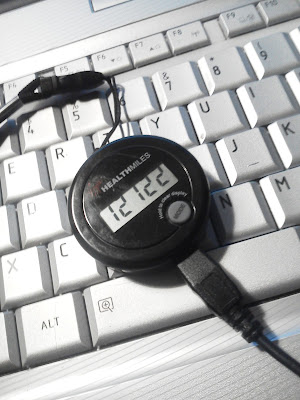A Grammar Lesson From An Eternal Editor
I was not an English major. I am not a professional.
However.
I have spent a lot of time editing other people's papers. It gets disturbing how many run-of-the-mill mistakes are made by truly intelligent people ... and even more disturbing how many "comment thread" mistakes make it into technical papers.
Keep in mind, I'm not overly concerned about the obscure rules. We're talking about things you shouldn't have to look up every time you write a paper. Okay?
With that in mind, I think it's time for a lesson.
 |
| One of my favorite "Frazz" moments of all time. (Copyright Jef Mallett - found here.) |
An English Primer
for
A Generation That Has Spent Its Free Time On
YouTube Comment Threads
1. Capitalization, or STOP YELLING AT ME!
Is it a proper name? Is it the first word in a sentence? Is it a title? Is it the letter "I" standing all alone? It should be capitalized. Are you trying to emphasize something? Don't capitalize. Use italics, if you must.
2. Abbreviations and You
This is pretty straightforward. Is it an association, like OSHA or APA? A technical term, like NPSH? Use the full version the first time and the abbreviation after. (Or the abbreviation the whole time in an email.) Is it a text-lingo situation? Just don't use it. "LOL" looks ridiculous to a professor, whether you're writing an essay or an email.
3. The Apostrophe Catastrophe
Oh, the things I could say here. The thing is ... people get stupid with apostrophes. It drives me batty. I'm going to try and break it down into easier parts. Wish me luck.
a. Contractions
Are you squishing words together and/or cutting out letters? Use an apostrophe to replace the dropped letter(s). "Do not" becomes "don't" -- "would not" becomes "wouldn't" -- "will not" becomes "won't" -- "you are" becomes "you're" -- "it is" becomes either "it's" or " 'tis," depending on how artsy you're feeling. And while we're here, let me point out that "they're" means "they are." And that's all it means.
b. Ownership
- If ... something belongs to a specific noun, you use an apostrophe. (Ashley's hat, the chair's leg, the cat's pajamas.)
- If ... it is a vague noun, you don't necessarily use an apostrophe. (Him, her, you, they, it -- his hat, her hat, your hat, their hats, its pajamas. Note that here, "their" means something belongs to a group. And that's it.)
- If ... a group of nouns own something (or several somethings), it kind of depends on the group. The general rule is that if it ends in an "s," you add just an apostrophe. (Chairs' legs.) If the word is plural without an "s" (as in women or men) then you probably add an apostrophe and "s" (as in "men's room"). It gets a little trickier with names.
[Note: The one big exception to the doesn't-end-with-an-s rule is theirs. It's just ... theirs. Not their's. And that's it.]
c. Plural Words That Don't Own A Dang Thing
Guess what? They don't need apostrophes. That's really all there is to it. The 1970s are not the 70's -- they're the '70s. (See how that apostrophe is replacing numbers? Yup. That's how that works.) We're keeping up with the Joneses, not the Jones's. (The Jones's what? Their cat with the pajamas? This is that tricky name thing I was talking about.) And if you're going to insist on the chair's, there better be a leg (or seat, or back, or occupant) attached. Apostrophes indicate ownership or missing letters. They do not indicate multiples.
4. Shoulda Coulda Woulda
Should have. Could have. Would have. These shorten to should've, could've, and would've. They do not shorten to should of, could of, and would of. "Of" is a preposition and it has no place here. Ever. Get it right.
5. The Effect of Affection
Look, this one gets me sometimes because there are all sorts of "but in this case, use ___" moments. "Effect" is usually a noun. "Affect" is usually a verb. Most of the time that can get you by, especially if you're not an English major. (This is the point where I find a different word or phrase if I can't figure it out.) But not always, and then I like to think of it as "effect" being concrete and solid while "affect" is almost passive. Just ... go read this or this. People smarter than me are full of good advice.
6. Accept the Exception
Accept is a verb that says "yes." Except is another way to say"but."
7. Definitely, Separately, Desperately, and About a Million More
Look, we all rely on spell check, partially for typos and partially because we each have our own words we always screw up. (Mine is "cemetery.") If your email has spell check, use it. If your email doesn't, read it twice and check the words you always mess up.
There are so many rules and exceptions out there, as elementary school kids and those learning English as their second language can easily tell you. If you can get these seven basics down, you will annoy your professors a lot less.
And that makes life a lot easier.
[Gosh, I hope I spelled everything right.]


Comments